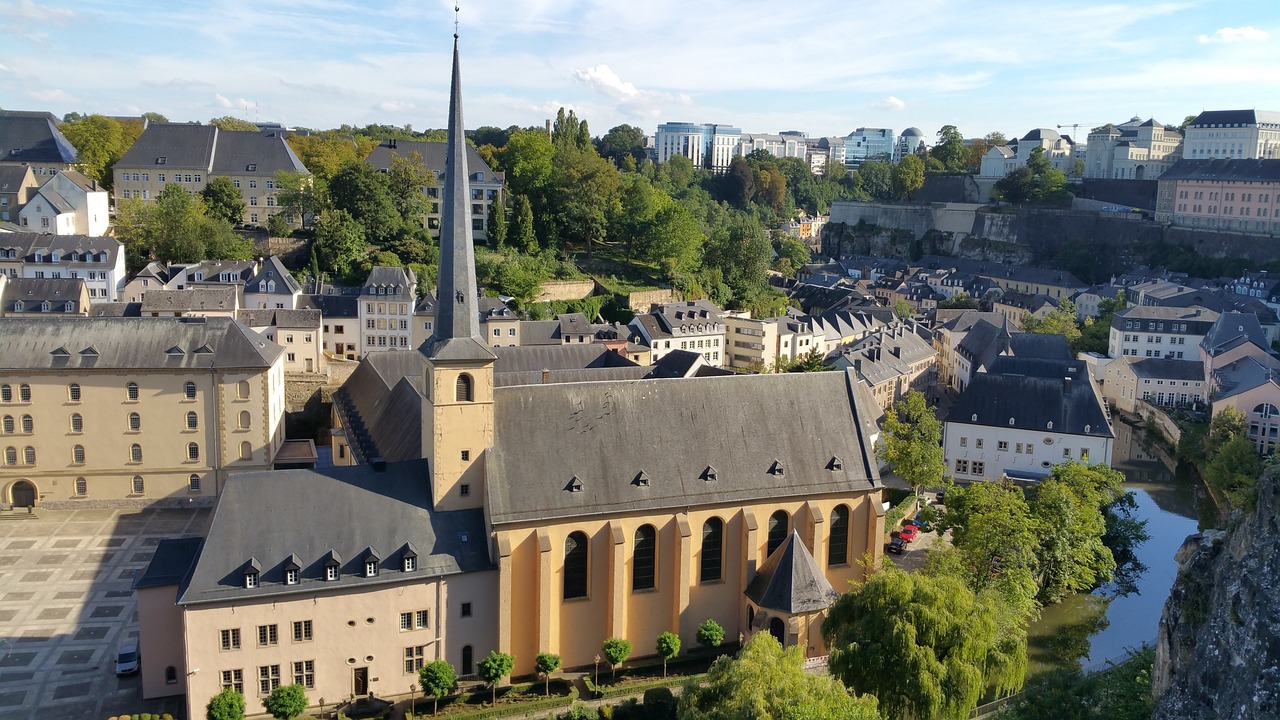Cannabis
Luxembourg Publishes Plan to Legalize Recreational Cannabis
Luxembourg was the first European country to announce its intention to introduce a legal adult-use cannabis market as part of its drug policy. The 2018 coalition agreement included a provision to decriminalize or legalize cannabis. Many other European countries have made changes to their cannabis policies, such as Malta, which became the first country in Europe to legalize access to recreational cannabis.

An expert group appointed by the Luxembourg government has unveiled plans for an experimental cannabis legalization program in the country. The report, titled “An Experimental System of Legal Access to Marijuana for Non-Medical Purposes,” outlines the prospects for a fully legal adult-use cannabis market in Luxembourg, with limited access for those over the age of 18.
Read more about Luxembourg’s plan to legalize recreational cannabis and find the most important cannabis news of the day with the Hemp.im mobile app.
Recommendations and restrictions of the cannabis plan
The report recommends allowing the possession of up to 3 grams of cannabis, the cultivation of a maximum of 4 plants at home, and the development of a legal framework for a retail market where residents will be able to buy up to 5 grams per day, but no more than 30 grams per month.
One of the program’s main objectives is to “regulate access to cannabis for non-medicinal purposes through a rigorous and robust pilot project, tailored to Luxembourg’s specific needs.”
Consultations and experts
The report was written after consultations with an inter-ministerial working group. The final document was reviewed by four international experts: Henri Bergeron, director of research at the CNRS, Rebecca Jesseman, director of policy at the Canadian Centre on Substance Use and Addiction, Tomasz Zabranski, an epidemiologist from the Czech Republic, and Steve Rolles, a policy analyst at the Transform Drug Policy Foundation.
Two-Phase pre-legalization
The first step in the pilot project will be to amend the current legislation, the February 19, 1973 law on the sale of drug substances.
Once the amended law is passed, each household will be allowed to grow up to four cannabis plants for personal use. Consumption of cannabis in public places will continue to be prohibited, and distribution and sale will be strictly restricted.
The second stage will involve the development of a state system for the production and sale of cannabis. To this end, a pilot project will be launched to test the possibility of improving the situation in the country. The experiment aims to determine how cannabis sales can be regulated so that access is limited only to those who meet the criteria, such as those living in Luxembourg and turning 18.
Licenses and outlets
There are plans to grant 2 production licenses and establish 14 cannabis outlets in Luxembourg. The sale of cannabis in public places will continue to be prohibited, and no designated consumption sites are planned. As part of the project, the Institute for Social Research and Market Studies in Luxembourg (ILRES) is conducting a survey analyzing current consumer behavior in the country. The survey will be conducted among 3,000 people, and the results will be published at the end of the year.
The Objectives of the Luxembourg Government
The Luxembourg government combines health and public safety goals. In terms of prevention, the main goal is to reduce the risk of cannabis use by ensuring a high-quality product. In the area of security, Luxembourg aims to gradually eliminate the illegal cannabis market, reduce drug-related crime and separate consumers from criminal circles.
Europe moving toward cannabis legalization
Luxembourg was the first European country to announce its intention to introduce a legal adult-use cannabis market as part of its drug policy. The 2018 coalition agreement included a provision to decriminalize or legalize cannabis.
The agreement stated: “Legislation on the recreational use of cannabis will be developed. The main objectives will be the decriminalization, or even legalization, under conditions yet to be determined, of production on Luxembourg’s territory, as well as the possibility for adult residents to purchase, possess and use recreational cannabis for personal purposes; the elimination of consumers from the black market; a decisive reduction in the associated mental and physical risks; and the fight against crime at the supply level.”
Since Luxembourg’s historic decision in 2018, many other European countries have made changes to their cannabis policies, such as Malta, which became the first country in Europe to legalize access to recreational cannabis.
Other countries that are changing their approach to adult-use cannabis include Germany, Switzerland, the Czech Republic, the Netherlands, and Portugal.
__
(Featured image by waldomiguez via Pixabay)
DISCLAIMER: This article was written by a third-party contributor and does not reflect the opinion of Born2Invest, its management, staff or its associates. Please review our disclaimer for more information.
This article may include forward-looking statements. These forward-looking statements generally are identified by the words “believe,” “project,” “estimate,” “become,” “plan,” “will,” and similar expressions. These forward-looking statements involve known and unknown risks as well as uncertainties, including those discussed in the following cautionary statements and elsewhere in this article and on this site. Although the Company may believe that its expectations are based on reasonable assumptions, the actual results that the Company may achieve may differ materially from any forward-looking statements, which reflect the opinions of the management of the Company only as of the date hereof. Additionally, please make sure to read these important disclosures.
First published in Fakty Konopne, a third-party contributor translated and adapted the article from the original. In case of discrepancy, the original will prevail.
Although we made reasonable efforts to provide accurate translations, some parts may be incorrect. Born2Invest assumes no responsibility for errors, omissions or ambiguities in the translations provided on this website. Any person or entity relying on translated content does so at their own risk. Born2Invest is not responsible for losses caused by such reliance on the accuracy or reliability of translated information. If you wish to report an error or inaccuracy in the translation, we encourage you to contact us.

-

 Biotech2 weeks ago
Biotech2 weeks agoPfizer Spain Highlights Innovation and Impact in 2024 Report Amid Key Anniversaries
-

 Business1 day ago
Business1 day agoLegal Process for Dividing Real Estate Inheritance
-

 Markets1 week ago
Markets1 week agoStock Markets Surge Amid Global Uncertainty, But Storm Clouds Loom
-

 Africa6 days ago
Africa6 days agoMorocco Charts a Citizen-Centered Path for Ethical and Inclusive AI
























